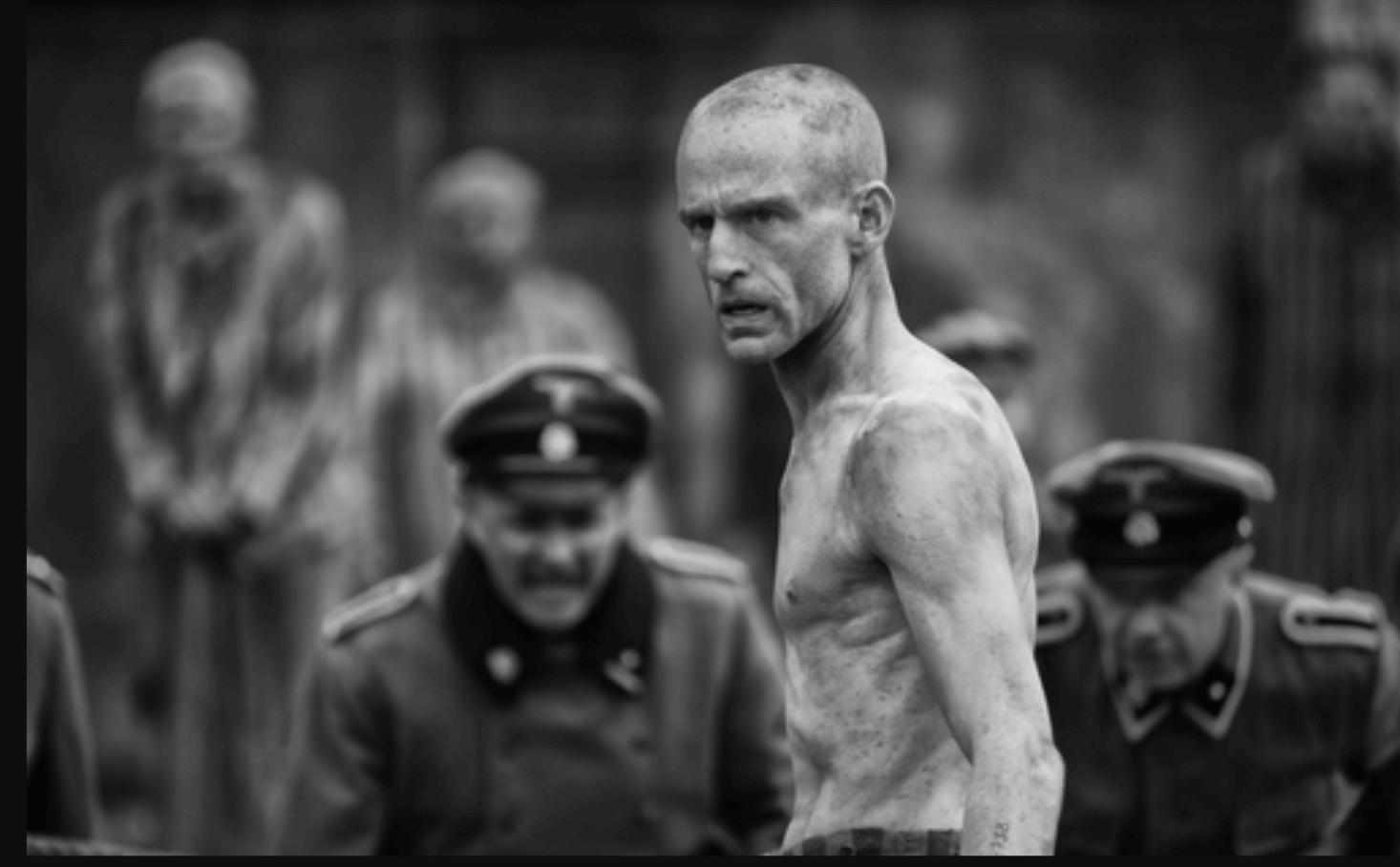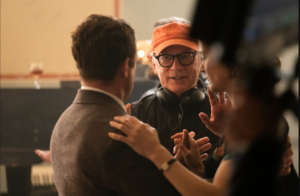How Ben Foster’s faith and family helped to make him a ‘survivor’
In a new HBO film about boxer Harry Haft, the actor pays homage to his grandmother who escaped pogroms in Romania to come to America

Ban Foster plays the role of Harry Haft in ‘The Survivor.’ Photo by HBO
Ben Foster was tearing up.
I was on a Zoom call with the actor, the second conversation I had with him over the last couple of months. The first time, we spoke about his work in the new HBO film, “The Survivor.” The next time we talked about his grandmother.
“The Survivor” is based on the life of Harry Haft, who made it through multiple concentration camps and built a semblance of a life for himself. While in Auschwitz, however, an SS guard taught him to box and forced him to participate in death matches with fellow prisoners: losers were shot. He eventually escaped, made it to the U.S., married, and had children. But he remained haunted by survivor’s guilt and lashed out at everyone before ultimately finding a measure of peace.
The film’s director, Barry Levinson, told me Foster was his first choice for the role. Years ago, Levinson gave the then-young actor one of his first significant jobs in “Liberty Heights,” and was convinced he would bring the necessary intensity to this role.
I spoke with Foster about one particularly emotional scene at the film’s end when a group of survivors gather at a wedding to sing “Gott Bench Amerika,” reaffirming their faith in their new homeland.
“It reminded me of my Nana,” Foster told me. “Whenever she saw a picture of he Statue of Liberty, she’d say, ’That’s my lady.’”
“She came over from Romania in 1924 when she was eight years old to escape the pogroms,” he said. “She smuggled her baby brother in in a basket.”
Apparently, the baby had been born after family travel had been arranged, and was too late to be added to the paperwork.
“The story was if the baby was discovered or if one of them was turned away the whole family would return to Romania,” Foster said.

But Celia Segal Foster (born Tsipora Tzigel) got through immigration, “and made a beautiful life with Frank Foster, my grandfather, whose family is from the Ukraine,” said Foster. “We would spend Holidays together. And they were there at my bar mitzvah. They are the immigrant story. My children would not be here if their parents hadn’t had the courage to escape the ugliness of antisemitism.”
“She is a profound presence in my life to this day,” Foster said. “We were with her when she left and miss her. It’s really wonderful to explore this material with her in my heart.”
To be accurate to the story and to his grandmother’s memory, Foster studied with a voice coach to get the proper dialect of the Polish shtetl where Haft grew up. And he says he insisted on losing weight for the role instead of relying on digital effects to make him look skinnier during concentration camp scenes.
“Intuitively, not as a chest beat, I blurted out, ‘if you want to go digital with my body for the weights, you’ve got the wrong actor.’” Foster told me. “You’ve seen the pictures. You can’t fake that. You can do digital, but it doesn’t have the same texture.”
I asked Foster whether how his Jewish upbringing influenced his approach to the role.
“The faith of Judaism, at least as I understand it, is asking the big ‘W’ question, why,” he said. “It’s the Talmudic exploration of our place on earth and our relationship to each other. So I believe that informed and continues to inform my life.”
The Survivor debuts in HBO April 27.





















